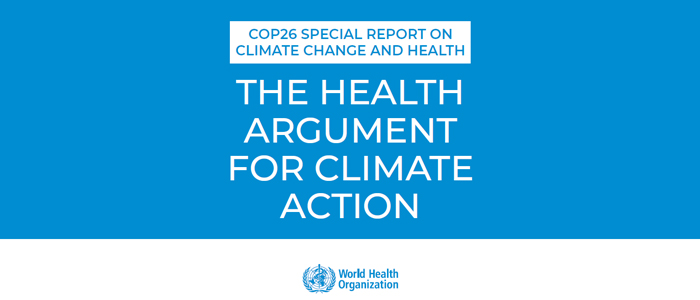Putting health at the heart of climate talks
Putting health at the heart of all climate discussions in Glasgow this week is the goal of the World Health Organization. Its Special Report on Climate Change and Health urges ten high impact actions for governments to take.

There is now a clear case for committing to a healthy, green, and equal future for all. The WHO, and the more than 150 organisations who contributed to the report, are advocating for governments to create clean resilient health systems and so much more.
WHO are urging COP26 attendees to build energy, food, and transport systems that further protect health and wellbeing. This means very concrete and real actions such as ending subsidies to fossil fuels and intensive agriculture, as well as future-proofing cities.
Ninety percent of the world’s population breathe unhealthy levels of air pollution that result in chronic illness, growth stunting, premature deaths. 690 million people are hungry, 2 billion people have micronutrient deficiencies, and over 670 million adults are obese.
Cities consume over two-thirds of global energy and are responsible for over 60% of greenhouse gas emissions. Reducing subsidies for industries that are making people and planet sick simultaneously support climate action and improve health. Investing in walking, cycling and clean public transport systems have synergistic benefits for climate, physical and mental health.
Such transformative changes should be underpinned by finance that follows a no-harm principle and closes investment gaps in health adaptation and resilience.
With health at the heart of all policies, we would also protect and restore nature as the foundation for all that we depend on – air, water, food. Life itself.
The Nossal Institute is writing a series of thought pieces to coincide with COP26 to discuss developments in the area of health and climate change. We will be reflecting on our contribution and invite discussion from you on how health systems can enable genuine planetary health.